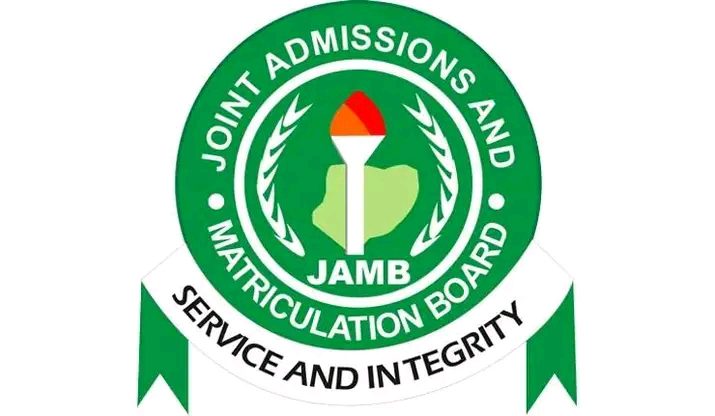Government JAMB Syllabus

Accomplishing success in the Unified Tertiary Matriculation Examination (UTME) requires strategic preparation, and mastering the Government JAMB syllabus is the cornerstone of that strategy.
This comprehensive guide delves into every vital detail you need to know about the syllabus, equipping you with the knowledge and confidence to ace the government section of your UTME.
The JAMB Government syllabus provides a roadmap for your studies, outlining the specific areas and concepts you’ll encounter in the exam.
Understanding this structure is crucial for effective preparation. Here’s a breakdown of the syllabus by part:
Part 1: Elements of Government (30% of questions)
Basic Concepts in Government: This section defines key terms like state, government, power, authority, legitimacy, and sovereignty. It explores the concept of the nation-state system and introduces different forms of political association.
Forms of Government: Dive into the intricacies of monarchy, aristocracy, oligarchy, autocracy, republicanism, and democracy, understanding their definitions, features, merits, and demerits.
Arms of Government: Learn about the legislative, executive, and judiciary, their functions, and the principle of separation of powers.
Structures of Governance: Explore the different levels of government (federal, state, local) and their respective roles in governance.
Systems of Governance: Understand the distinctions between unitary, federal, and confederate systems, along with their advantages and disadvantages.
Political Ideologies: Delve into liberalism, conservatism, socialism, and other ideologies, analyzing their core principles and how they influence government policies.
Constitution: Unravel the significance of the constitution as the supreme law of the land, its features, and the processes of amendment.
Principles of Democratic Government: Grasp the fundamental principles of democracy, such as popular sovereignty, rule of law, fundamental human rights, and the role of the electorate.
Processes of Legislation: Understand the steps involved in making laws, from bill introduction to presidential assent.
Citizenship: Explore the rights, duties, and obligations of citizens in a democratic society, emphasizing active participation in the political process.
Part 2: Political Dynamics and Processes (40% of questions)
The Electoral Process: Demystify the electoral process in Nigeria, including registration of voters, party nomination, campaigning, voting procedures, and election results announcement.
Political Parties and Party Systems: Analyze the roles and functions of political parties in a democracy, understanding different party systems (two-party, multi-party) and their impact on governance.
Pressure Groups: Explore the different types of pressure groups (interest groups, lobby groups), their methods of operation, and their influence on policy formulation.
Public Opinion: Grasp the concept of public opinion, its formation, and its influence on government decision-making. Learn about how public opinion is measured and interpreted.
The Civil Service: Understand the role of the civil service in implementing government policies, its structure, and the principles of neutrality and meritocracy.
Part 3: Government and Development (30% of questions)
Political Development: Analyze the concept of political development and its stages, exploring factors like political stability, economic growth, and citizen participation.
Challenges of Development in Nigeria: Examine the major challenges hindering development in Nigeria, such as corruption, poverty, inequality, and ethnic conflicts.
The Role of Nigeria in International Relations: Understand Nigeria’s role in international organizations like the African Union (AU), ECOWAS, and the United Nations (UN), and its contributions to global peace and security.
Tips for Success
Mastering the syllabus is essential, but it’s only one piece of the puzzle. Here are some additional tips to enhance your UTME preparation:
- Study Smart, Not Just Hard: Prioritize understanding over rote memorization. Use study methods like mind maps, flashcards, and practice questions to reinforce learning.
- Stay Updated: Keep yourself informed about current events and government policies relevant to the syllabus. Read newspapers, watch news channels, and follow credible online sources.
- Practice Past Papers: Familiarize yourself with the exam format and question types by solving past JAMB Government papers. Analyze your mistakes and refine your approach for future attempts.
- Seek Guidance: Don’t hesitate to seek help from teachers, tutors, or online resources when you encounter challenging concepts.
- Believe in Yourself: Maintain a positive mindset and a strong belief in your abilities. The key to success lies in consistent effort and unwavering determination.
FAQs
How long should I dedicate to studying for the Government section?
The time required varies depending on your individual learning pace and prior knowledge. However, aiming for at least 2-3 hours of dedicated study per week is recommended. You can adjust this based on your overall study plan and other subjects.
What are some reliable resources for preparing for the Government JAMB exam?
- JAMB Official Syllabus: This is the primary source of information and should be your guiding document.
- JAMB past question papers: Practice past papers to understand the exam format, question types, and difficulty level.
- Recommended textbooks: Consult JAMB-approved textbooks for detailed explanations of concepts and relevant case studies.
- Online resources: Several websites and YouTube channels offer video tutorials, practice questions, and study guides specifically for the JAMB Government syllabus.
- Educational apps: Interactive apps can gamify learning and help you test your knowledge on the go.
What are some common mistakes to avoid while preparing for the Government JAMB exam?
- Relying solely on rote memorization: Understanding concepts is crucial for scoring well. Practice applying your knowledge to different scenarios.
- Neglecting past papers: Analyzing past papers is essential for familiarizing yourself with the exam format and question types.
- Ignoring current events: Stay updated on relevant political developments to gain context for exam questions.
- Procrastinating: Start your preparation early and dedicate consistent study time throughout.
- Panic and anxiety: Maintain a positive mindset and believe in your capabilities. Remember, thorough preparation is key to success.
Also Read: Geography JAMB Syllabus





